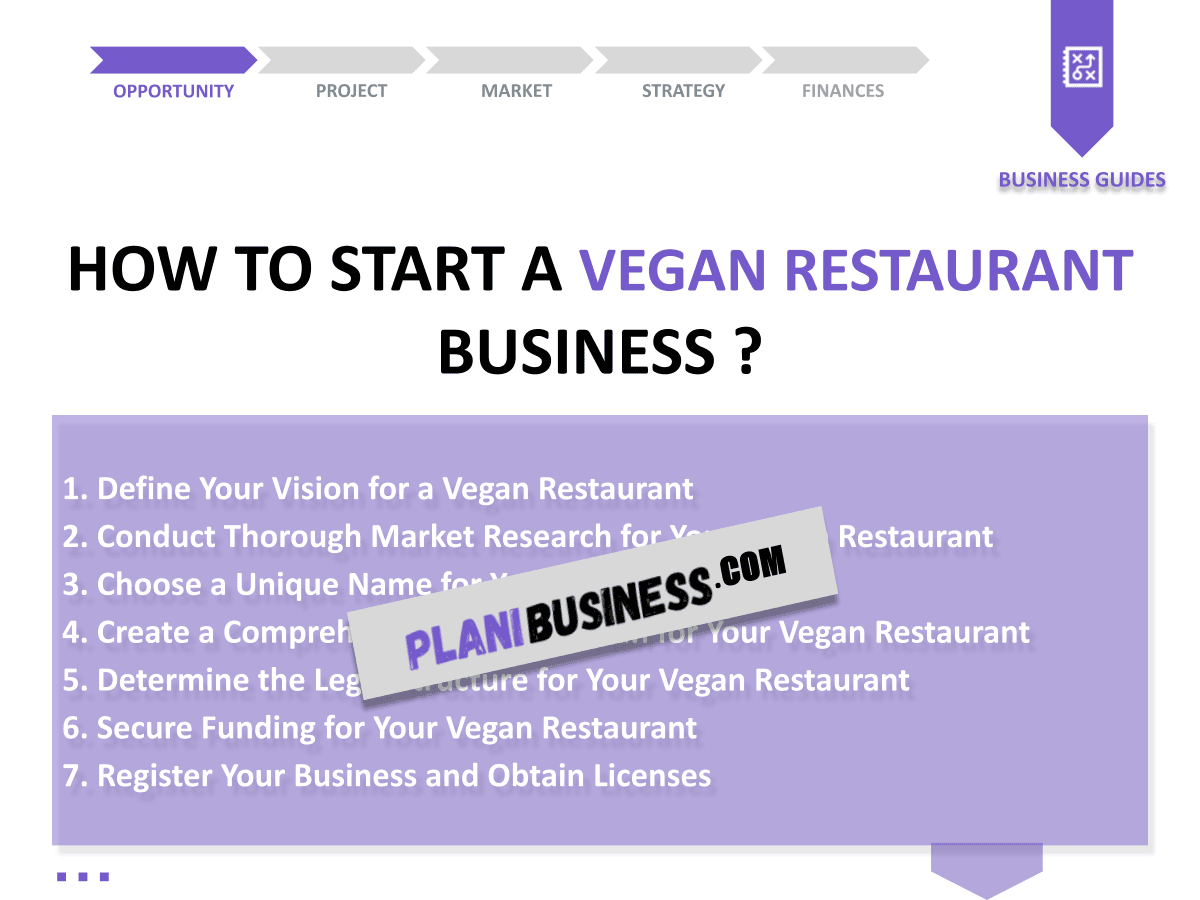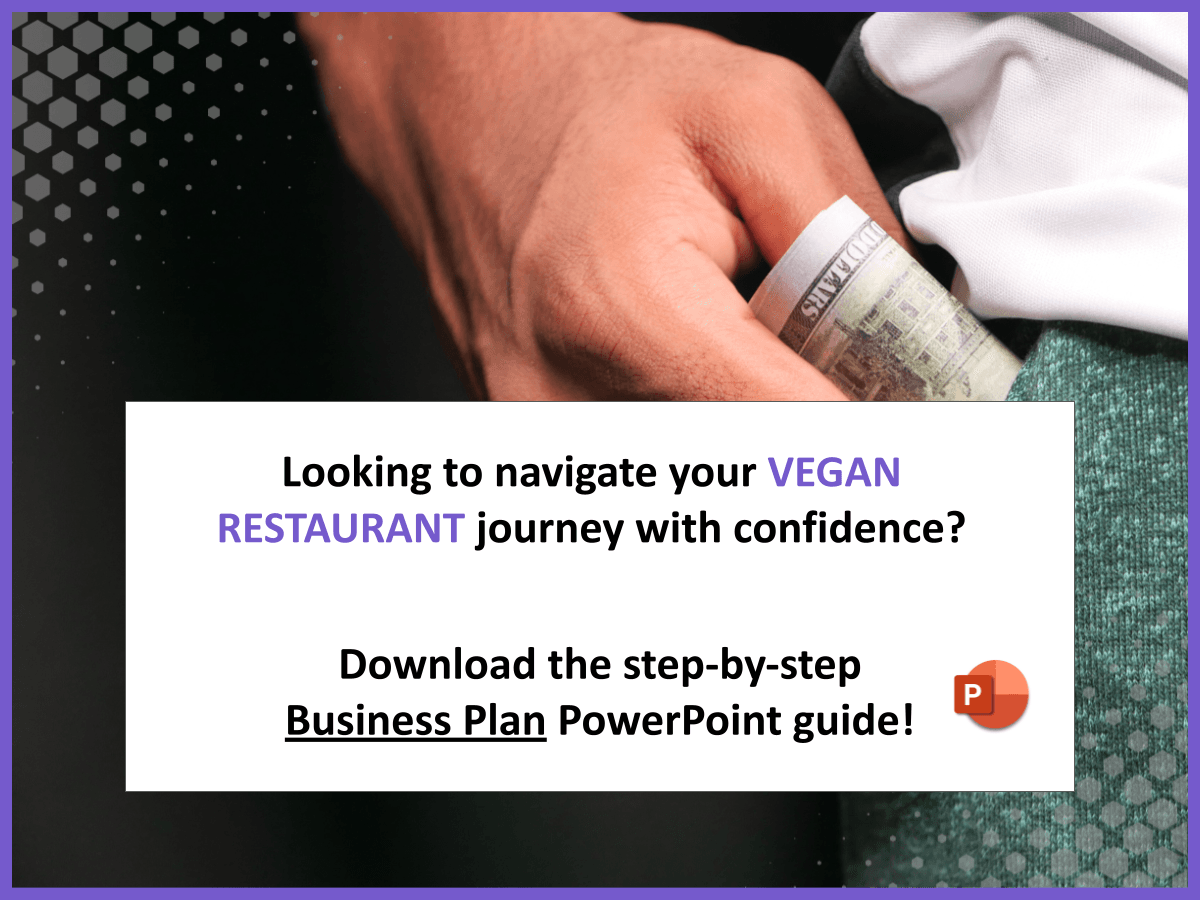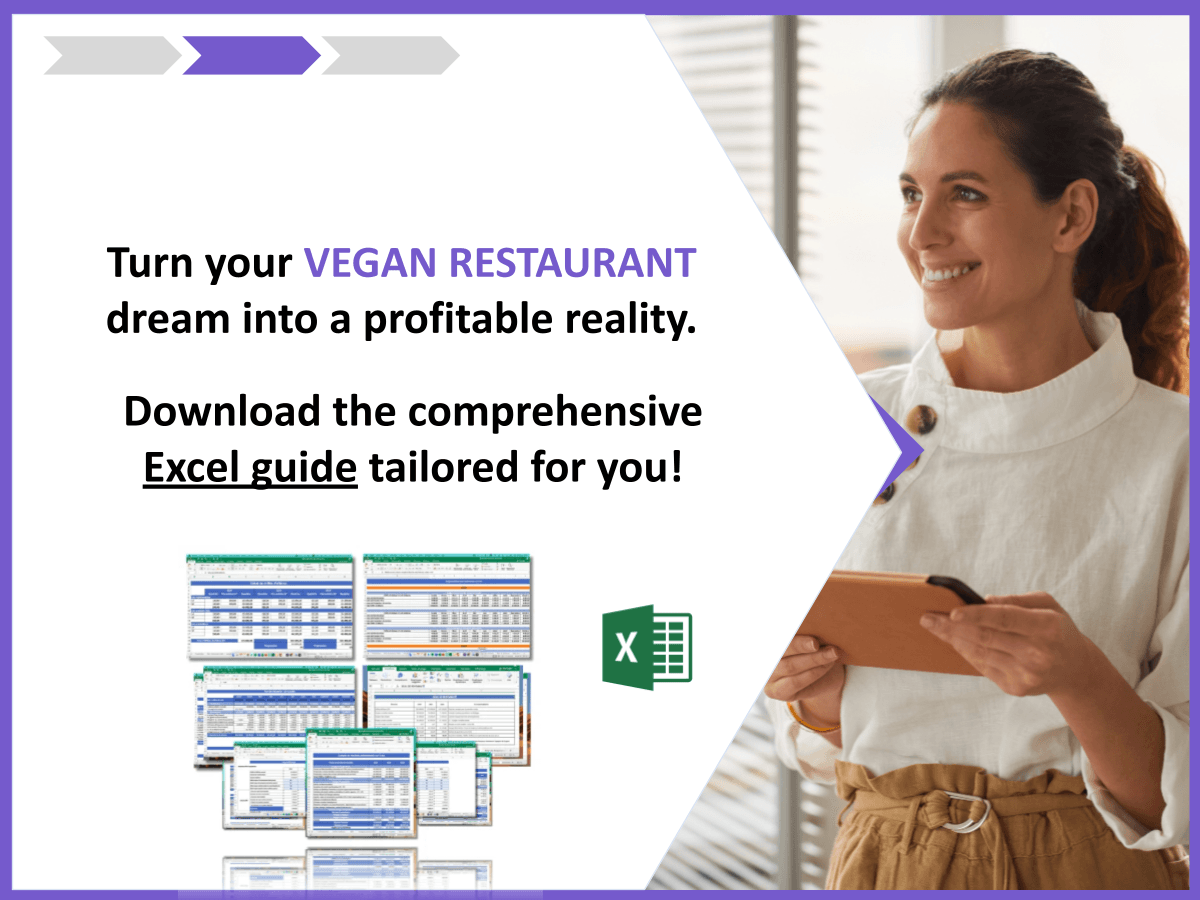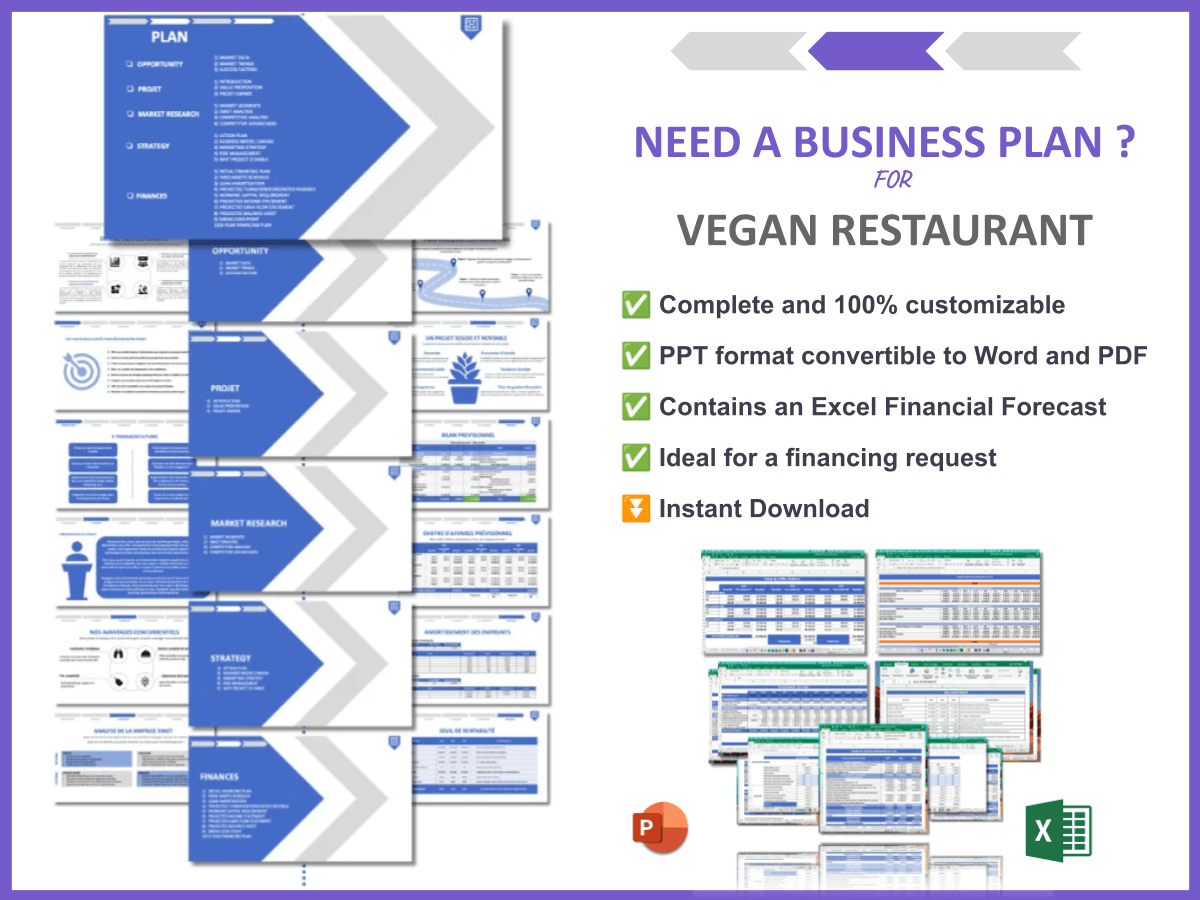Did you know that the vegan food market is projected to grow by over 50% in the next few years? If you’re considering how to start a vegan restaurant, you’re in good company! The rise of plant-based eating isn’t just a trend; it’s a movement that’s changing the way we think about food. Starting a vegan restaurant means embracing a lifestyle that promotes health, sustainability, and compassion.
In this article, we’ll dive into the essential steps you need to take to successfully launch your own vegan restaurant. Here’s a sneak peek of what we’ll cover:
- Defining your vision and unique concept
- Conducting market research
- Choosing the right name and legal structure
- Creating a solid business plan
- Marketing strategies to attract customers
- Building a team and enhancing customer experience
1. Define Your Vision for a Vegan Restaurant
Starting with a strong vision is crucial when considering how to start a vegan restaurant. This vision should encapsulate the essence of your restaurant and what it stands for. Think about your personal motivations—are you passionate about promoting health, sustainability, or perhaps animal rights? Your culinary inspirations also play a significant role. Do you want to focus on comfort food, gourmet dishes, or ethnic cuisines?
Here are a few points to help you refine your vision:
- Personal Motivation: Reflect on what drives you to open a vegan restaurant.
- Culinary Inspirations: Consider the types of vegan dishes you want to serve.
- Impact: Think about the positive change you want to create in your community.
Remember, your vision will guide every decision you make, from menu development to marketing strategies. It’s more than just a business; it’s a reflection of your values and passion.
2. Conduct Thorough Market Research for Your Vegan Restaurant
Next up, you need to dive into some serious market research. This step is essential for understanding the landscape of your local food scene and identifying your target audience. Here’s how to get started:
- Identify Your Target Audience: Determine who your ideal customers are. Are they health-conscious individuals, families, or perhaps college students? Knowing your audience will help you tailor your menu and marketing efforts.
- Analyze Competitors: Look into other vegan restaurants in your area. What are they doing well? Where do they fall short? Create a table to summarize your findings:
| Restaurant Name | Strengths | Weaknesses |
|---|---|---|
| Green Eats | Wide menu variety, strong online presence | High prices |
| Veggie Delights | Cozy atmosphere, excellent customer service | Limited hours |
Once you gather this information, you’ll have a better understanding of where your restaurant can fit into the market. Also, keep an eye on local food trends. Are more people becoming interested in sustainable dining? Is there a growing demand for vegan meal prep? These insights can shape your offerings and marketing strategies.
In conclusion, conducting thorough market research not only helps you identify your competitors but also gives you a solid foundation to build upon as you embark on your journey of how to start a vegan restaurant.
3. Choose a Unique Name for Your Vegan Restaurant
Choosing the right name for your vegan restaurant is more important than you might think. A catchy, memorable name can attract customers and reflect your brand’s identity. Here are some tips to help you brainstorm:
- Reflect Your Concept: Think about the type of vegan food you’ll serve. If your focus is on gourmet dishes, consider a name that sounds upscale.
- Keep It Short and Sweet: Aim for a name that’s easy to pronounce and remember. Long or complicated names can be a turn-off.
- Check Availability: Before you fall in love with a name, make sure it’s not already in use. Check domain availability if you plan to create a website.
Here’s a table with some creative name ideas to inspire you:
| Name Idea | Concept |
|---|---|
| Plant Power | Focus on the health benefits of veganism |
| Veggie Haven | A cozy spot for comfort food |
| Green Plate | Emphasis on sustainability and eco-friendliness |
Remember, your restaurant name is often the first impression potential customers will have. Make it count!
4. Create a Comprehensive Business Plan for Your Vegan Restaurant
Now that you’ve got your vision and name, it’s time to put everything into a solid plan. A comprehensive business plan will serve as your roadmap, guiding you through the journey of how to start a vegan restaurant. Here are the key components to include:
- Executive Summary: A brief overview of your restaurant concept, mission, and vision.
- Market Analysis: Include your market research findings, target audience, and competitive analysis.
- Menu Development: Outline the types of dishes you’ll offer, including potential pricing strategies.
- Marketing Strategy: Describe how you plan to attract customers through various channels.
- Financial Projections: Estimate your startup costs, revenue forecasts, and break-even analysis.
For a deeper dive into crafting your business plan, I highly recommend checking out this business plan template for vegan restaurants. It can provide you with a structured approach and ensure you don’t miss any crucial details.
Creating a business plan may feel overwhelming, but think of it as a way to clarify your ideas and strategies. It’s also a valuable tool when seeking funding or partnerships, as it demonstrates your commitment and planning skills. So, take your time, be thorough, and let your passion shine through!
5. Determine the Legal Structure for Your Vegan Restaurant
Choosing the right legal structure for your vegan restaurant is a significant step that can impact your taxes, liability, and business operations. Here are the most common options:
- Sole Proprietorship: This is the simplest structure, where you own the business alone. It’s easy to set up, but you’re personally liable for any debts.
- Partnership: If you’re starting the restaurant with someone else, a partnership allows you to share profits and responsibilities. However, you’ll also share liability.
- Limited Liability Company (LLC): This offers protection from personal liability while allowing flexibility in management. It’s a popular choice for small businesses.
- Corporation: A more complex structure, a corporation protects personal assets and can attract investors, but it requires more paperwork and regulations.
Before making a decision, consider consulting with a legal professional to understand the implications of each structure. Here’s a table to help you weigh the pros and cons:
| Legal Structure | Pros | Cons |
|---|---|---|
| Sole Proprietorship | Easy to set up, complete control | Personal liability for debts |
| Partnership | Shared resources, easy to establish | Shared liability |
| LLC | Limited liability, tax flexibility | More paperwork than sole proprietorship |
| Corporation | Limited liability, easier to raise capital | Complex regulations, higher costs |
Once you’ve selected your structure, you can move forward with the next steps of your journey in how to start a vegan restaurant.
6. Secure Funding for Your Vegan Restaurant
Now that you have a clear vision and legal structure, it’s time to tackle the financial side of things. Securing funding is often one of the biggest challenges for new restaurant owners. Here are some popular options:
- Personal Savings: Using your savings is a common way to fund your restaurant, but it comes with risks if the business doesn’t succeed.
- Bank Loans: Traditional bank loans can provide substantial funding, but they often require a solid business plan and collateral.
- Investors: Bringing in investors can give you the capital you need, but be prepared to share profits and decision-making.
- Crowdfunding: Platforms like Kickstarter or GoFundMe allow you to raise small amounts from many people, which can be great for community engagement.
When seeking funding, it’s crucial to present your business plan clearly and confidently. Potential investors or lenders want to see that you’ve done your homework and have a solid plan for profitability. Consider creating a financial projection that outlines your expected costs and revenues.
In conclusion, securing funding can feel daunting, but with determination and the right strategy, you can find the resources you need to launch your vegan restaurant successfully. Remember, every great restaurant started with a dream and a little bit of financial support!
7. Register Your Business and Obtain Licenses
After determining your legal structure and securing funding, it’s time to make your vegan restaurant official. Registering your business is a crucial step in the process of how to start a vegan restaurant. Here’s what you need to do:
- Choose Your Business Name: Make sure your chosen name is unique and not already in use. You can check with your local business registry.
- Register Your Business: Depending on your legal structure, you may need to register your business with your state or local government. This usually involves filing paperwork and paying a fee.
- Obtain Necessary Licenses and Permits: Research the specific licenses and permits required for operating a restaurant in your area. This often includes health permits, food service licenses, and potentially liquor licenses if you plan to serve alcohol.
Here’s a quick list of common licenses and permits you might need:
- Business license
- Health department permit
- Food handler’s permit
- Sign permit
- Alcohol license (if applicable)
Be sure to check local regulations, as requirements can vary widely depending on your location. Taking the time to ensure you have all the necessary paperwork will save you headaches down the line.
8. Set Up Your Financial Management Systems
Once your business is registered and you have the necessary licenses, it’s crucial to establish a solid financial management system. This is a key step in successfully running your vegan restaurant. Here are some important components to consider:
- Choose Accounting Software: Select a user-friendly accounting software that suits your needs. Popular options include QuickBooks, Xero, and FreshBooks. This will help you track income, expenses, and generate financial reports.
- Set Up a Business Bank Account: Keep your personal and business finances separate by opening a dedicated business bank account. This will make accounting easier and more transparent.
- Implement a Budgeting System: Create a budget that outlines your expected costs, including rent, utilities, staff salaries, and inventory. Regularly review your budget to ensure you’re staying on track.
Consider using a table to organize your estimated expenses:
| Expense Category | Estimated Monthly Cost |
|---|---|
| Rent | $2,000 |
| Utilities | $300 |
| Staff Salaries | $5,000 |
| Inventory | $1,500 |
| Marketing | $400 |
By setting up an efficient financial management system, you can keep a close eye on your restaurant’s financial health. This will help you make informed decisions and ensure your business remains profitable as you embark on the exciting journey of how to start a vegan restaurant.
9. Develop Your Brand Identity for Your Vegan Restaurant
Your brand identity is what sets you apart from other restaurants and helps you connect with your customers. Developing a strong brand is essential in the process of how to start a vegan restaurant. Here are some key elements to consider:
- Logo Design: Your logo should reflect your restaurant’s vibe and values. Consider hiring a professional designer or using online tools to create a unique logo that resonates with your audience.
- Color Scheme: Choose colors that reflect the mood you want to convey. For example, greens and browns can evoke feelings of freshness and sustainability, while vibrant colors can attract a younger crowd.
- Mission Statement: Craft a clear mission statement that communicates your values and what your restaurant stands for. This statement should guide your business decisions and marketing efforts.
Here’s a table summarizing some brand identity components:
| Component | Purpose |
|---|---|
| Logo | Visual representation of your brand |
| Color Scheme | Sets the mood and attracts customers |
| Mission Statement | Guides your business values and decisions |
By investing time in developing a cohesive brand identity, you’ll create a memorable experience for your customers that encourages loyalty and word-of-mouth promotion.
10. Build a Professional Website for Your Vegan Restaurant
In today’s digital age, having a professional website is a must for any restaurant. Your website serves as your online presence and can significantly impact your success. Here’s how to create an effective website for your vegan restaurant:
- User-Friendly Design: Make sure your website is easy to navigate. Potential customers should be able to find information quickly, such as your menu, hours, and location.
- Showcase Your Menu: Highlight your vegan offerings with mouth-watering images and detailed descriptions. Consider including a downloadable PDF menu for easy access.
- Integrate Online Reservations: If applicable, allow customers to make reservations directly through your website. This convenience can enhance the dining experience.
Additionally, ensure your website is mobile-friendly. Many people browse on their phones, and a responsive design will make a positive impression. Here’s a quick checklist for your restaurant website:
- Homepage with a welcoming message
- Menu page with prices and descriptions
- Contact information and location map
- About page sharing your story and mission
- Blog or news section for updates and events
Investing in a professional website not only enhances your restaurant’s credibility but also serves as a powerful marketing tool as you navigate the exciting journey of how to start a vegan restaurant.
11. Develop a Marketing Strategy for Your Vegan Restaurant
Now that you have your brand and website in place, it’s time to create a marketing strategy that will attract customers to your vegan restaurant. A well-thought-out marketing plan is essential in the journey of how to start a vegan restaurant. Here are some effective strategies to consider:
- Social Media Engagement: Utilize platforms like Instagram, Facebook, and Twitter to share beautiful images of your dishes, promote special events, and connect with your community. Regular posts can help build a loyal following.
- Local Advertising: Don’t underestimate the power of local ads. Consider flyers, community boards, and local magazines to reach potential customers. You can also collaborate with local businesses for cross-promotions.
- Host Events: Organize events like cooking classes, vegan food tastings, or community potlucks. This not only brings people in but also helps establish your restaurant as a community hub.
Here’s a table summarizing different marketing strategies:
| Strategy | Benefits |
|---|---|
| Social Media | Builds community and engagement |
| Local Advertising | Targets nearby customers effectively |
| Host Events | Creates buzz and attracts new customers |
By implementing a combination of these strategies, you can create a strong presence for your vegan restaurant and attract a steady stream of customers.
12. Assemble a Talented Team for Your Vegan Restaurant
Having a skilled and passionate team is crucial for the success of your vegan restaurant. The right people can make a huge difference in the customer experience. Here’s how to build a strong team:
- Hiring the Right Staff: Look for individuals who share your passion for vegan food and customer service. Conduct interviews that not only assess skills but also cultural fit.
- Training Programs: Implement thorough training programs to ensure your staff understands your menu, values, and customer service expectations. Consider ongoing training to keep everyone updated on new dishes or practices.
- Foster a Positive Work Environment: Encourage open communication and teamwork. A positive atmosphere can lead to higher employee satisfaction and better customer service.
Here’s a quick checklist for assembling your team:
- Define roles and responsibilities
- Establish a hiring process
- Develop training materials
- Set performance expectations
- Encourage feedback and growth
Remember, your staff is the face of your restaurant. Investing in them is investing in the success of your vegan restaurant.
13. Create a Customer Experience That Keeps Them Coming Back
The final step in how to start a vegan restaurant is to focus on creating an unforgettable customer experience. This is what will keep your patrons coming back for more. Here are some tips:
- Exceptional Service: Train your staff to provide friendly and attentive service. A warm welcome and prompt service can leave a lasting impression.
- Quality Food: Ensure that every dish served meets high standards. Fresh ingredients and creative recipes can elevate the dining experience.
- Solicit Feedback: Encourage customers to share their thoughts about their experience. Use this feedback to make improvements and show customers that you value their opinions.
Here’s a table summarizing elements of a great customer experience:
| Element | Importance |
|---|---|
| Service | Creates a welcoming environment |
| Food Quality | Ensures repeat visits |
| Feedback | Helps improve offerings |
By focusing on these aspects, you can create a loyal customer base that not only returns but also spreads the word about your amazing vegan restaurant. Remember, starting a vegan restaurant is not just about the food; it’s about the entire experience you offer.
Conclusion
Starting a vegan restaurant is an exciting journey filled with challenges and opportunities. By following the steps outlined in this guide, from defining your vision to creating an unforgettable customer experience, you can build a successful business that aligns with your values and passion for plant-based eating. Remember, it’s not just about serving delicious food; it’s about creating a community and promoting a lifestyle that resonates with your customers.
As you continue on this path, consider diving deeper into essential strategies by exploring our articles on how to create a SWOT Analysis for a vegan restaurant and how to write a vegan restaurant marketing plan. These resources can provide valuable insights to help your restaurant thrive in the competitive food industry.
FAQ
- What are the startup costs for a vegan restaurant?The startup costs can vary widely depending on location, size, and concept. Generally, you can expect expenses for leasing space, renovations, equipment, permits, and initial inventory. A rough estimate might range from $100,000 to $500,000.
- How can I create a vegan menu that attracts customers?Focus on creativity and variety. Incorporate seasonal ingredients, showcase local produce, and consider dietary restrictions like gluten-free options. Highlight unique dishes that reflect current food trends.
- Do I need special permits to open a vegan restaurant?Yes, you’ll need various permits, including a business license, health department permit, and food service license. Requirements can differ by location, so check local regulations.
- What marketing strategies work best for vegan restaurants?Effective strategies include social media engagement, local advertising, and hosting community events. Collaborating with local influencers can also help increase visibility.
- How can I ensure my vegan restaurant is sustainable?Source ingredients from local, organic farms, minimize food waste, and use eco-friendly packaging. Implementing sustainable practices not only helps the environment but can also attract eco-conscious customers.
- What should I include in my vegan restaurant business plan?Your business plan should include an executive summary, market analysis, menu development, marketing strategy, and financial projections. It serves as a roadmap for your business.
- How can I train my staff to promote a positive customer experience?Provide comprehensive training that covers menu knowledge, customer service skills, and your restaurant’s values. Encourage feedback and ongoing training to keep staff engaged.
- What are some common challenges when starting a vegan restaurant?Challenges may include competition from established restaurants, sourcing quality ingredients, and building a customer base. Staying adaptable and focused on your unique offerings can help overcome these hurdles.
- How important is location for a vegan restaurant?Location is crucial; it should be accessible and in an area with a demographic that appreciates vegan cuisine. Conduct market research to find the best fit for your restaurant.
- Can a vegan restaurant be profitable?Absolutely! With the rising popularity of plant-based diets, many vegan restaurants are thriving. Focus on quality food, excellent service, and effective marketing to ensure profitability.







